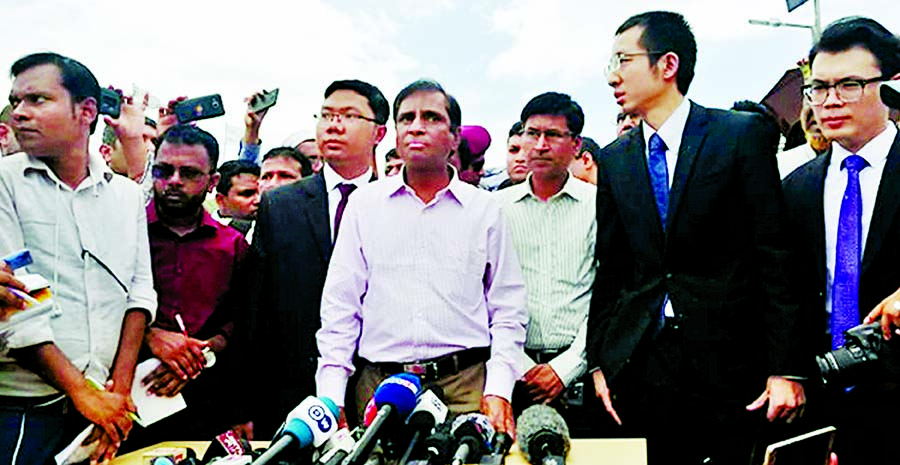
Staff Reporter :
A second attempt to repatriate the ‘forcibly displaced Rohingyas’ in Bangladesh to their homes in Rakhine State of Myanmar stalled on Thursday as Rohingyas refused to return out of concerns for their safety and security, and basic rights.
A total of 235 Rohingya families were supposed to be repatriated from Shalbagan 26 No. Rohingya Camp at Nilai Union in Teknaf Upazila in the morning.
As part of the effort, a foolproof security system has been put in place in the area ranging from Kerantali to Naikhongchhari in the district’s Teknaf upazila bordering Myanmar.
Despite all preparation, no Rohingya turned up to avail the ‘voluntary’ repatriation offer given by them to go back to their place of origin in Rakhine State of Myanmar forcing the authorities to suspend the process for the day.
“We have taken all preparations to repatriate them. Five buses ready kept ready in front of the camp since morning to transport the listed Rohingyas to transit camps. But none has responded yet as Rohingyas refused to go back,” Mohammad Abul Kalam, Commissioner of the Relief and Repatriation Commission (RRRC), told reporters at a media briefing in front of Shalbagan Rohingya Camp around 12:30pm.
During the briefing, representatives from China and Mynamar were present. “If anyone of the listed refugee agrees to be repatriated by 4:00am, he or she will be sent back to Myanmar,” said Abul Kalam, adding that they interviewed listed Rohingyas over the last couple of days and encouraged them to return to their homeland.
But nobody turned up for repatriation till 4:00pm forcing the authorities to halt the repatriation process.
“No Rohingya was willing to go back to Myanmar’s Rakhine State out of concerns for their safety and security, and equal rights,” an UNHCR official in Dhaka told The New Nation yesterday on condition of anonymity.
He said Rohingyas are demanding citizenship, safety and security before their repatriation, and after their return, they want to get back their homes and land, and seeking justice for the crimes committed against them.
Earlier, Myanmar cleared some 3,450 Rohingyas for repatriation from 22,000 names that Bangladesh had sent to Myanmar for verification.
Bangladesh has been bearing the burden of over 11 lakh Rohingyas and most of them entered the country since August 25, 2017.
More than 700,000 of them fled a security crackdown in Myanmar almost two years ago, according to the U.N. refugee agency.
The two countries signed a repatriation deal on November 23, 2017, but there has been little progress.
On July 29, Bangladesh handed a fresh list of 25,000 Rohingyas from around 6,000 families to Myanmar for verification before their repatriation to Rakhine State.
With the latest list, Bangladesh has so far handed the names of around 55,000 Rohingyas to the Myanmar authorities and around 8,000 of them have been verified. Myanmar only cleared 3,450 Rohingyas for beginning the repatriation.
On January 16, 2018 Bangladesh and Myanmar inked a document on “Physical Arrangement”, which was supposed to facilitate the return of Rohingyas to their homeland.
The “Physical Arrangement” stipulates that the repatriation will be completed preferably within two years from the start.
The first batch of Rohingyas was scheduled to return on November 15 last year but it was halted amid the unwillingness of Rohingyas to go back for lack of a congenial environment in Rakhine.
Unwilling to go back to Rakhine, Nur Alam, 34, a Rohingya community leader at Balukhali refugee camp, told media that they would go back if they are assured that the Myanmar government would grant them citizenship and all basic rights, and a U.N. peacekeeping force is deployed to ensure our safety and security in Rakhine State.

